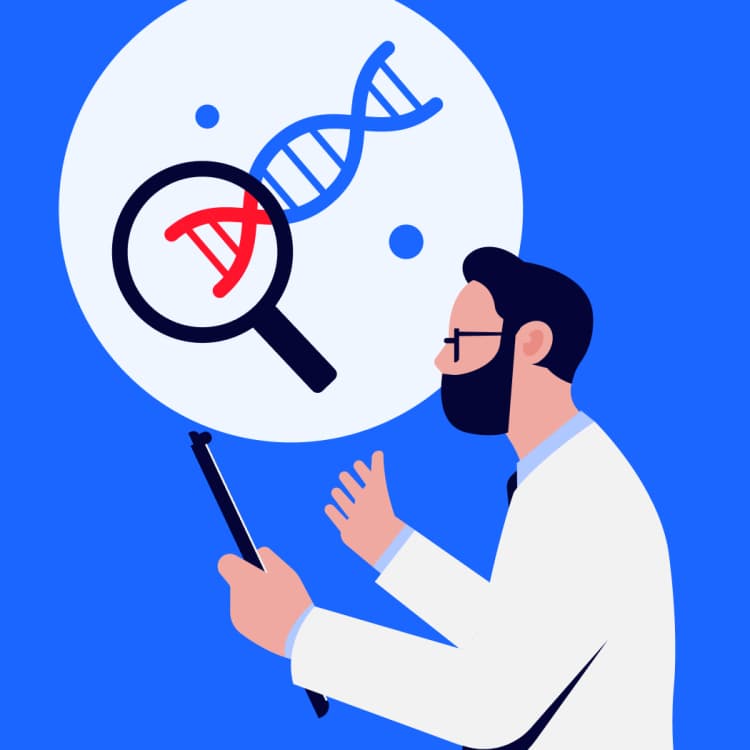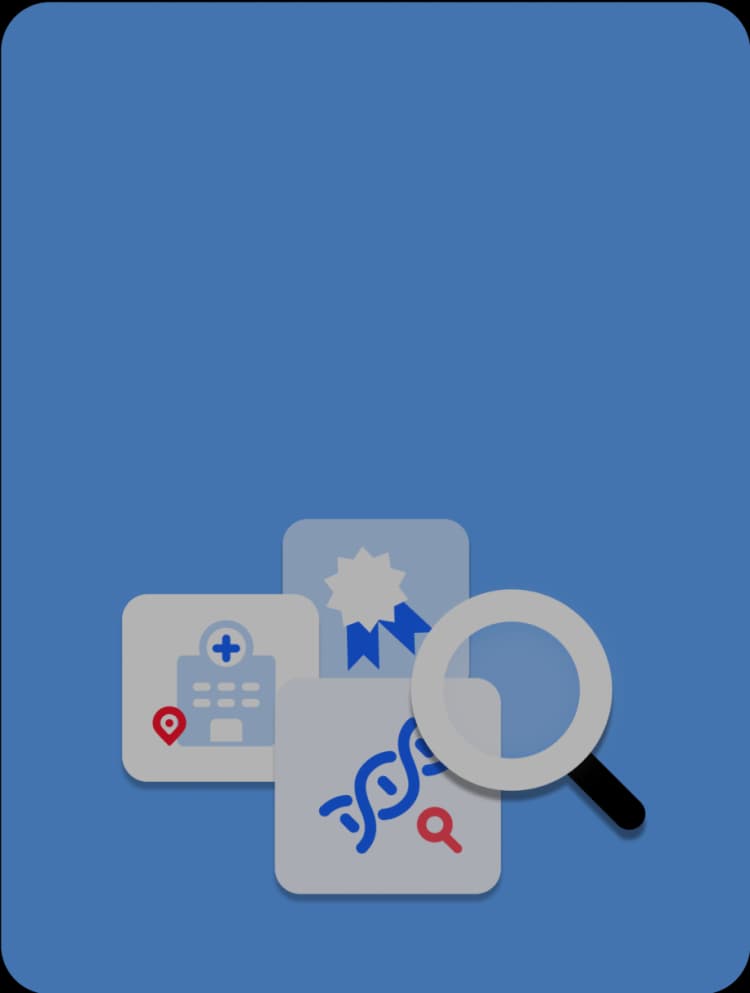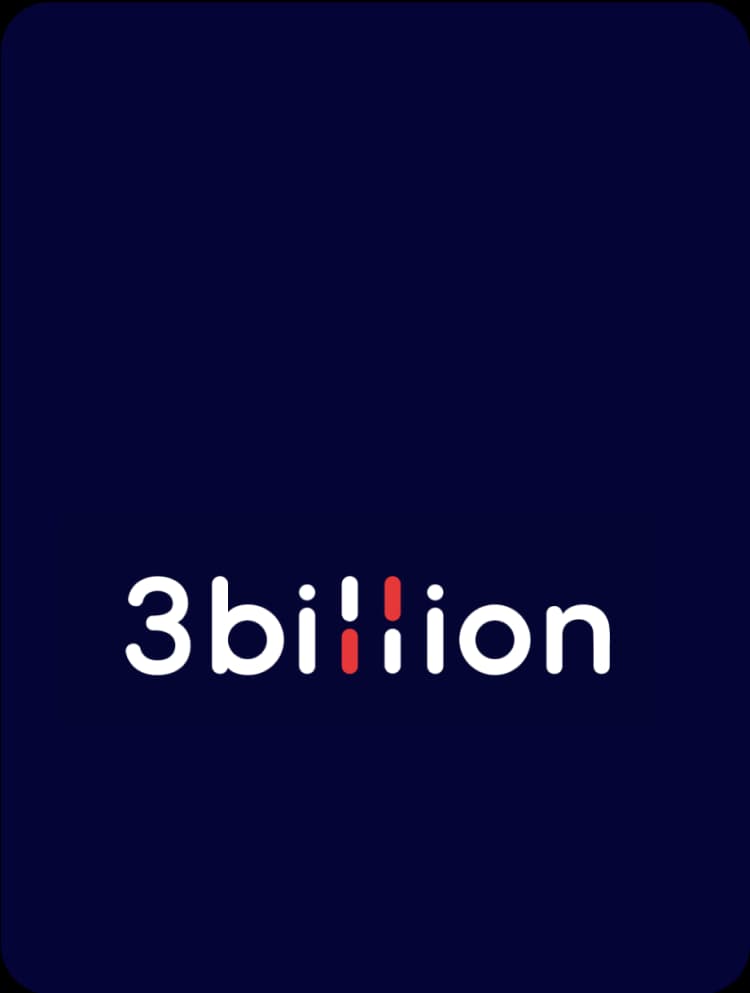Why does the Whole exome sequencing cost variable?
Many customers have asked us at 3billion why the Whole exome sequencing cost is different. Whole exome sequencing (WES) is a sequencing method that targets the protein-coding regions of the genome. Because this requires the analysis of only 1%-2% of the whole genome, WES is more cost-effective than whole genome sequencing. As sequencing technology continues to rapidly evolve, overall prices in the genetic testing market continue to decline. Moreover, the number of cases requiring sequencing-based diagnosis is increasing. However, next-generation sequencing (NGS) is based on methodology that is “scalable” but inflexible. The cost of sequencing varies depending on important factors such as the number of samples, geographical region, the sector in which the customers belong. Here, we briefly examine the reasons why WES test prices tend to vary.
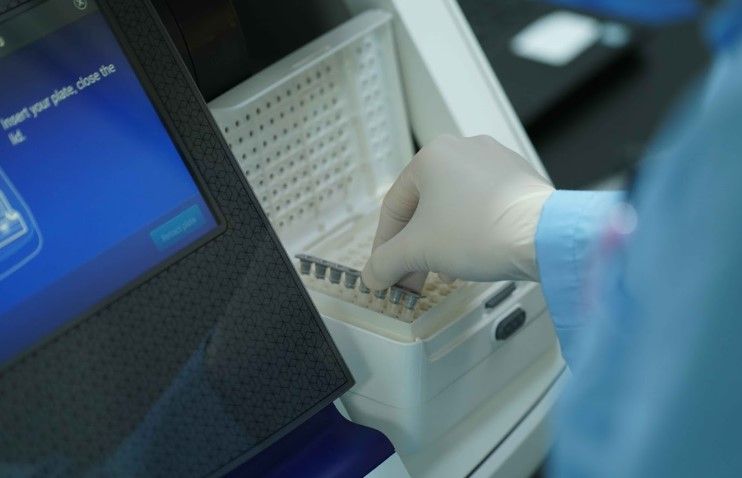
Number of samples
The time and resources required for sequencing different numbers of samples may vary even within the one company using the same platform. This means that the same manufacturer will produce dissimilar capacity platforms because the number of samples that can be loaded in each run and the amount of data generated for each sample are different.
For example, in a small laboratory, a small platform is convenient for running only a few samples on a few polygenic panels per week. However, if full exome sequencing of a single sample in the same laboratory requires one day, then the platform will prove to be completely uneconomical. Therefore, for genetic testing companies, whole exome sequencing costs can be made reasonable by processing many samples using a large sequencing platform.
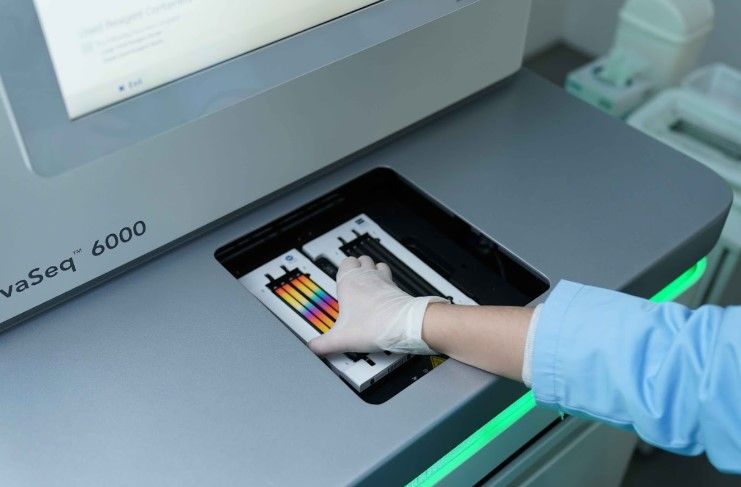
Geographical region
The cost of whole exome sequencing differs from country to country and across geographical regions. Costs depend on the numbers of providers and customers in a region, as well as the insurance situation, economic conditions, government policy, and so on.
Commercial and public
The sector involved, i.e., private versus public, also affects the whole exome sequencing cost. In public health systems, genetic testing typically requires a prescription that is difficult to obtain and long turnaround time (TAT), however, the cost for the service can be free. In contrast of case of commercial genetic testing, even if the waiting times are long, turnaround time for a sequencing job typically takes no more than 7-9 weeks. At 3billion, a result report is generally obtained within 4-6 weeks, and turnaround times are become shorter every year. There are also a few complicated factors that decide the price of genetic testing depending on the various stakeholders in the public health system.
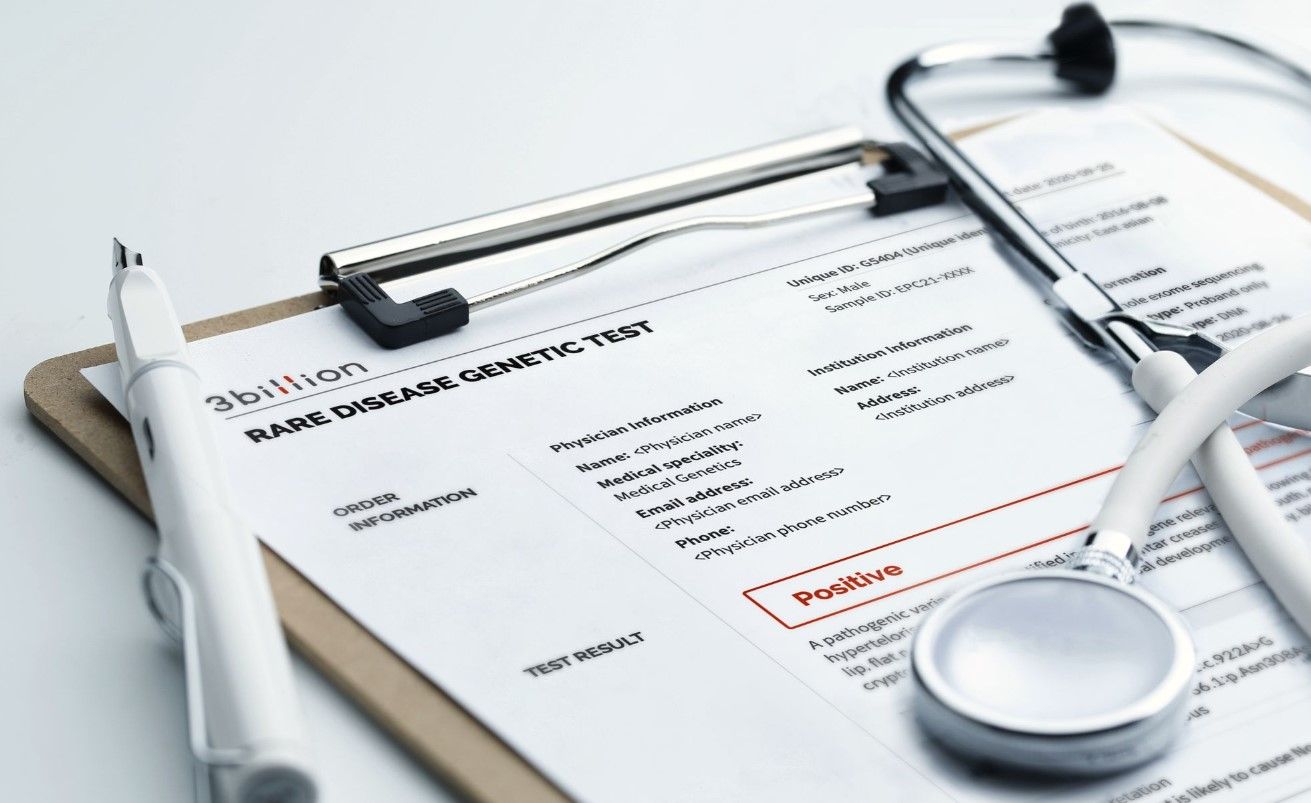
Different diagnostic rate
Various factors may contribute to variability in test results at each diagnosis stage. For example, data quality depends on exome capture kit performance, the method used for the American College of Medical Genetics and Genomics (ACMG) guideline application (e.g., the number of rules applied), data interpretation method, and so on.
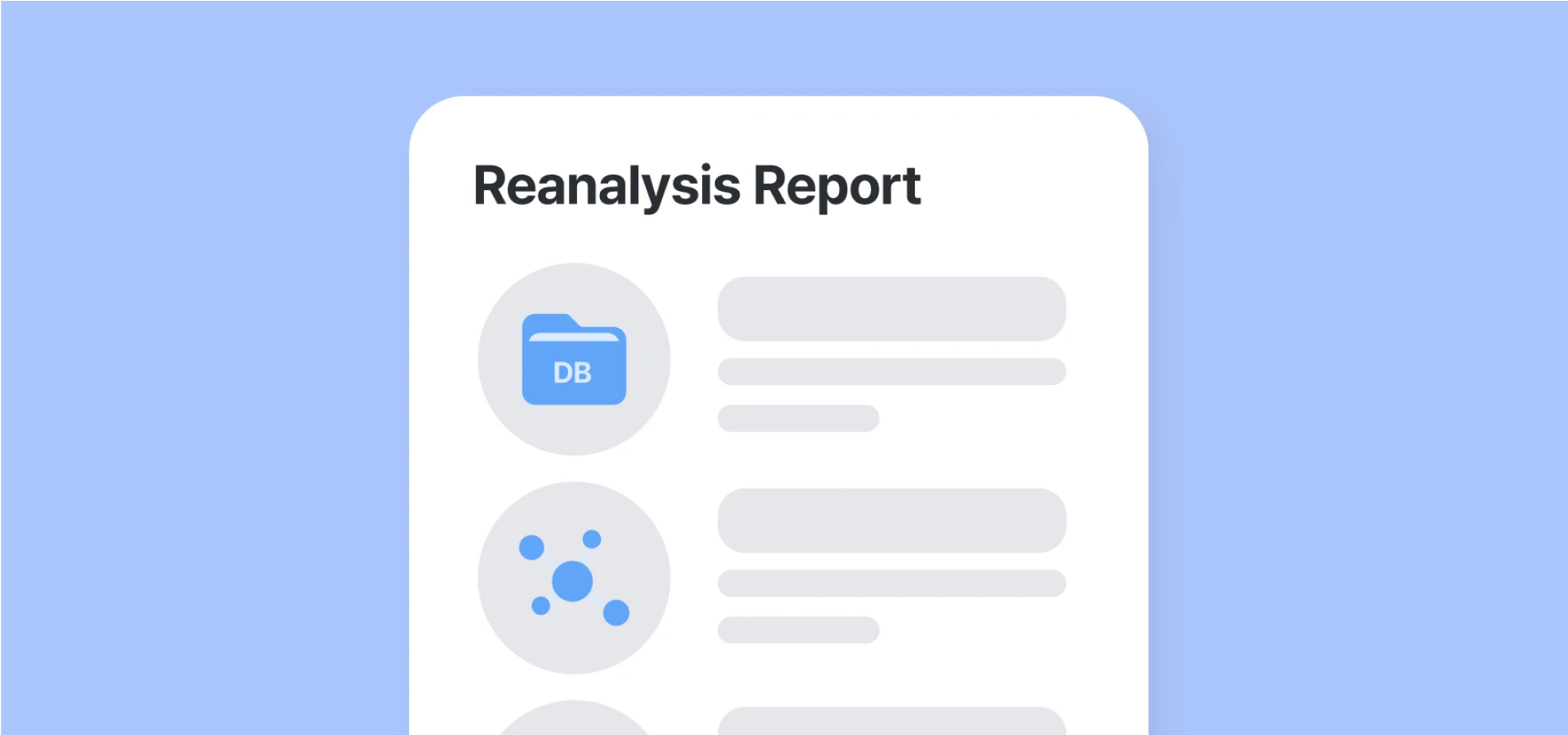
Curious How We Boost Diagnostic Accuracy?
Discover the breakthroughs in our latest reanalysis report.
Interpreter expertise is another important factor affecting diagnostic accuracy. Currently, each company uses its own methods to increase its diagnostic rate. 3billion has developed EVIDENCE, an automated variant prioritization system for clinical diagnosis. Artificial intelligence plays an auxiliary role in reducing TAT and increasing diagnostic rates. At 3billion, refined genetic diagnosis is a matter of knowledge, experience, and ability of clinical scientists and medical geneticists to interpret the clinical significance of genetic mutations.
Because new rare diseases are being continually discovered – there are 300 new variants being discovered every year – reanalysis is an important task emphasized at 3billion. We reanalyzes sequencing results daily for undiagnosed patients, reflecting the latest research and evidence as it reveals newly without additional burden cost to both physician and patient.
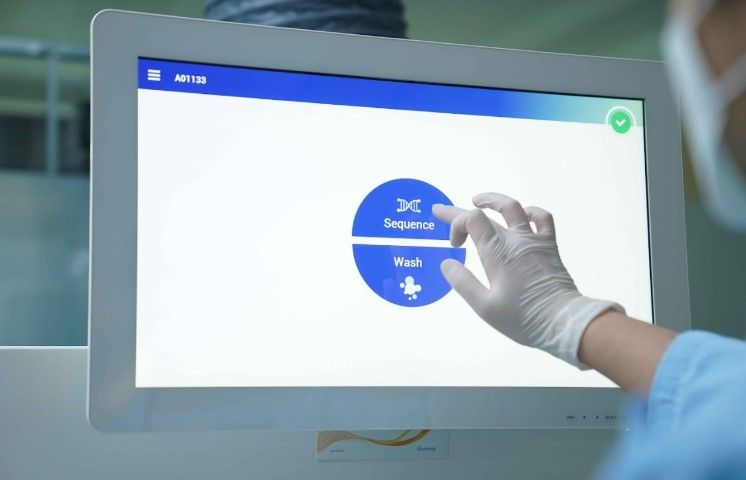
How much should whole exome sequencing cost?
Nowadays, numerous bioinformatics companies focus on creating new technologies, for example, sequencers that carry out genetic testing at affordable costs. Many of providers generally try to offer whole exome sequencing cost from $999 to below $400. The price is determined by the aforementioned factors. While cheap sequencing is important, there are other factors that need to be considered before choosing a diagnostic company.
Dozens of companies disclose their sequencing prices. However, companies also offer special prices that depend on various promotions and circumstances. Therefore, it is difficult to objectively compare sequencing costs of different companies. For the discerning customer, the choice of a sequencing company should consider additional costs such as sample delivery costs, quality of sequencing results, time and process efficiency to receive diagnostic reports, and follow-up management, including reclassification and reanalysis.
Whether you are a patient with a rare disease, a physician, or a large institution, please do not hesitate to contact us! 3billion always try to find a good set of examples for your specific project that could extrapolated to your needs.
Learn more about our CAP/CLIA-certified genetic testing services with an brochure exclusively for healthcare providers!
Get exclusive rare disease updates
from 3billion.

YoonJung Shin
Content Marketer

